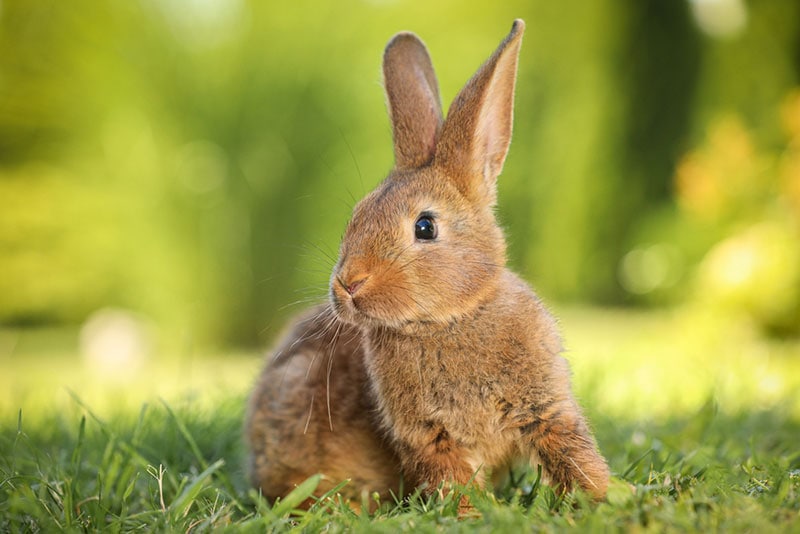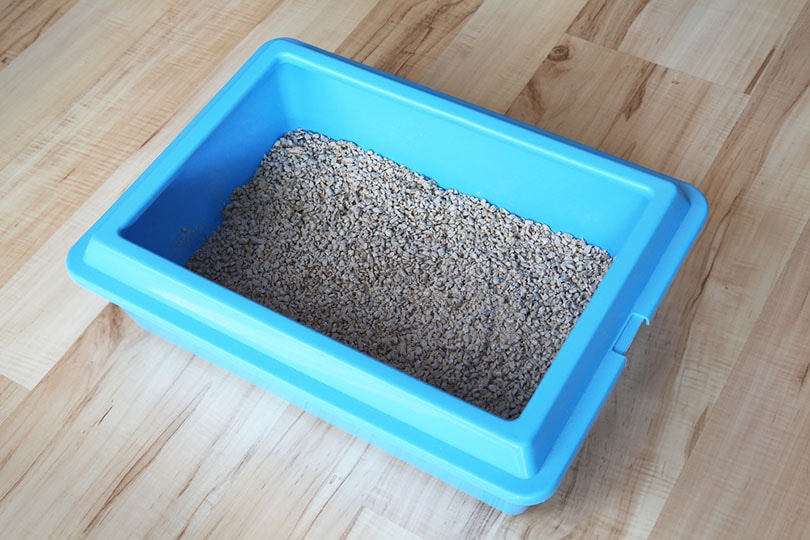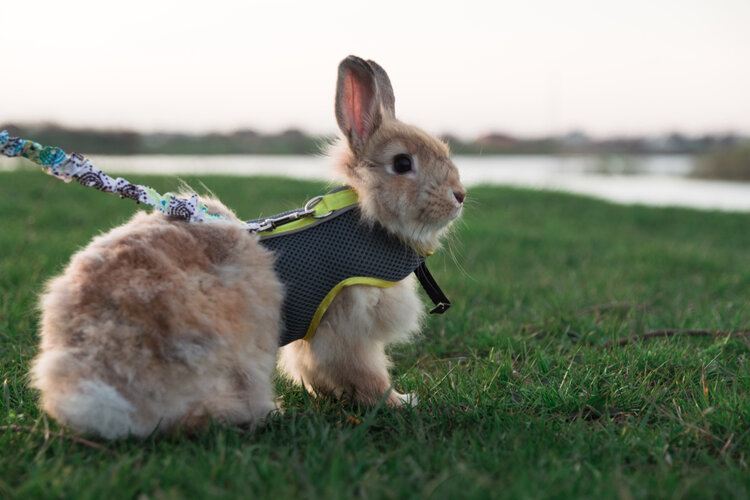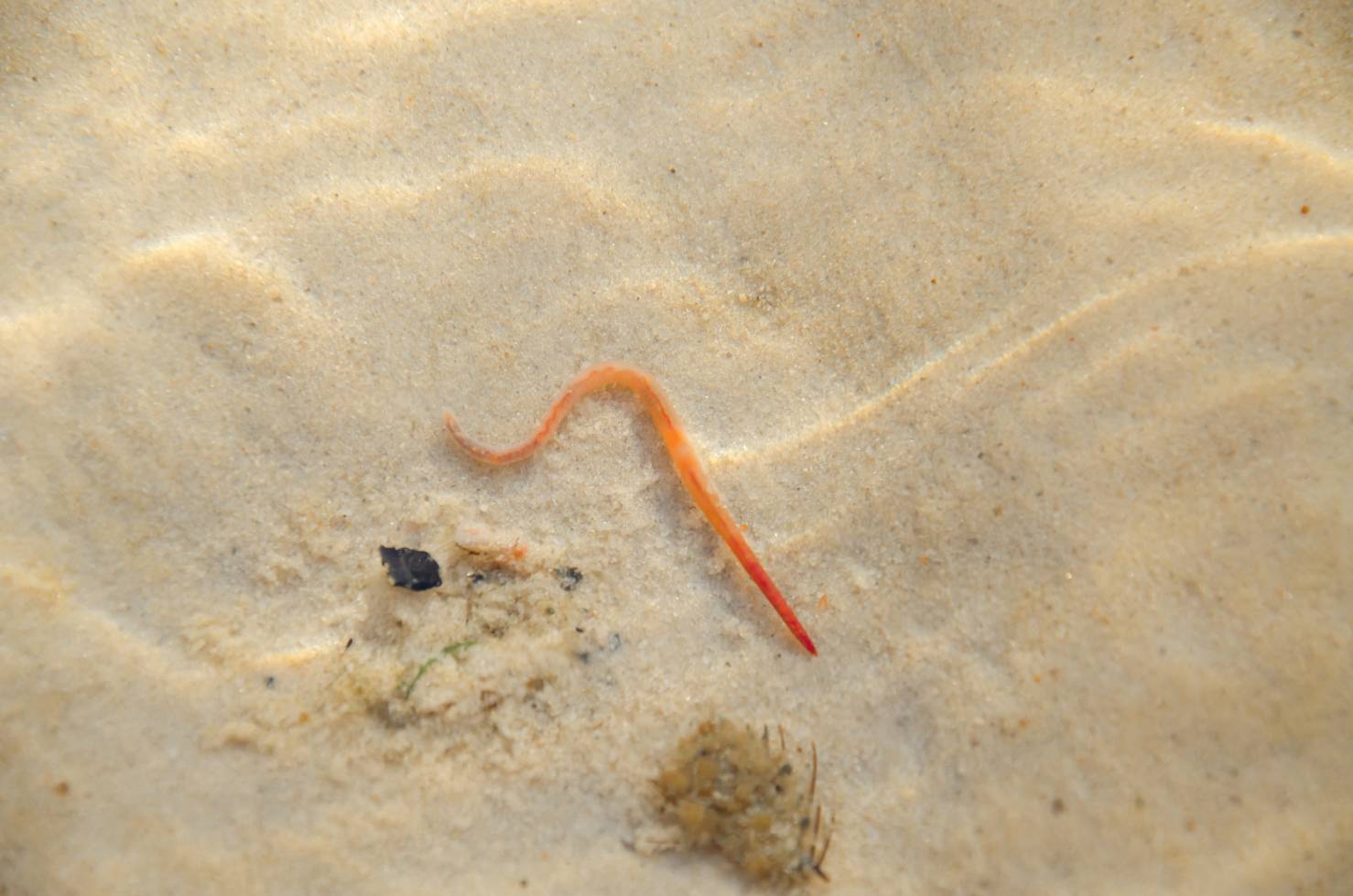VET APPROVED

The information is current and up-to-date in accordance with the latest veterinarian research.
Learn more »Whether you’re looking for a natural way to keep pesky rabbits from destroying your veggie patch, or you want to make sure your garden is a paradise for your long-eared pet, learning what smells will repel a bunny is some useful knowledge to have. Equipped with keen olfactory senses, rabbits can readily sniff out food, be alerted to the presence of predators, and avoid plants that may be toxic.
When you know what sorts of smells will make a rabbit turn tail and hop in the opposite direction, you can use that knowledge to deter unwanted lagomorphs or rid your house and garden of items that will upset your pet.
Let’s take a look at 15 scents that rabbits hate.

The 15 Smells That Rabbits Hate
1. The Smell of Predators
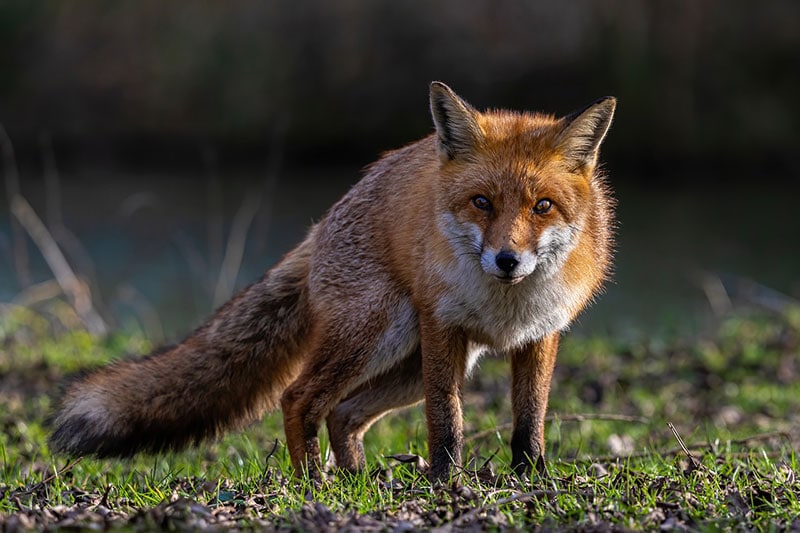
This one isn’t surprising, given that the rabbit is a prey species. Such an animal must know this scent instinctively. The fact that many predators mark their territories is a godsend for prey.
It helps the predator avoid physical confrontations with interlopers. It also gives prey a heads-up about threats.
2. Blood Meal
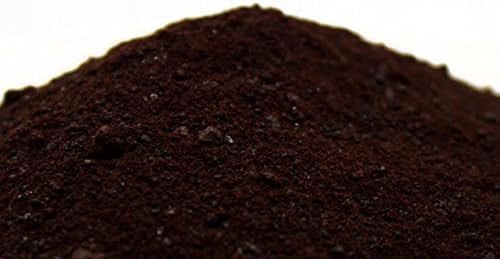
Blood meal has a similar effect as our previous entry. After all, blood usually means a kill and a predator in the vicinity. It pays to stay alert to these dangers. It also explains why using blood meal in your garden can keep animal pests at bay.
Only a few applications are necessary to get the message out to the local wildlife to stay away from a particular place.
3. Vinegar

Vinegar doesn’t have the same predator-prey connection. However, it’s pungent and disagreeable, even to humans. It can be an early warning of a potentially harmful substance that causes rabbits to turn up their collective noses at the smell. Remember that rabbits are herbivores.
Remember that rabbits are herbivores, and in the wild, they may eat fruits, nuts, or grains occasionally. A vinegar odor often denotes something sour or rotten.
4. Rotten Eggs

The rotten egg smell is hydrogen sulfide. These volatile sulfur compounds are also foul enough to turn away any animal. It often occurs toward the end of fermentation and in the absence of oxygen.
Even though it can dissipate quickly, a rabbit’s keen sense of smell can still pick up on the smell, sending them elsewhere.
5. Garlic
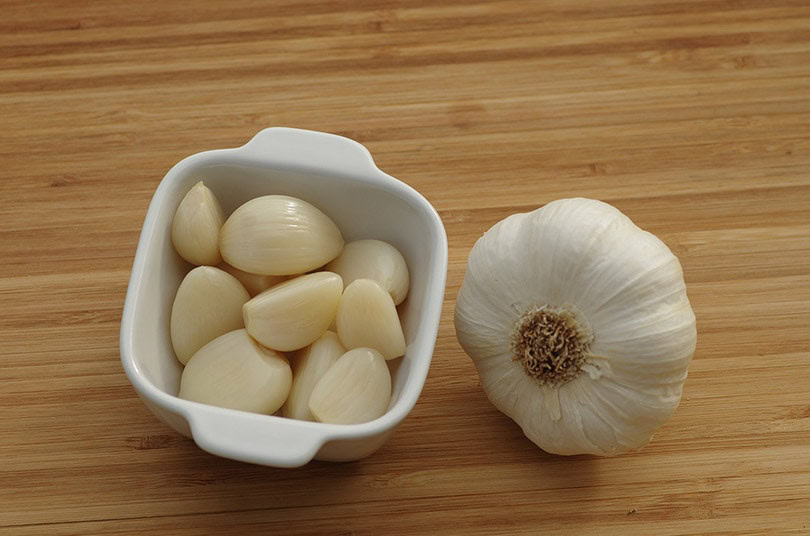
Garlic is toxic to many pets, including dogs and cats. It can cause a type of anemia that damages red blood cells. It has a similar effect on rabbits, requiring prompt treatment if the pet is to recover. Of course, people don’t react the same way, with garlic possibly offering some health benefits.
The smell of garlic is sure to turn away any bunnies if you’re having trouble deterring them.
6. Onions
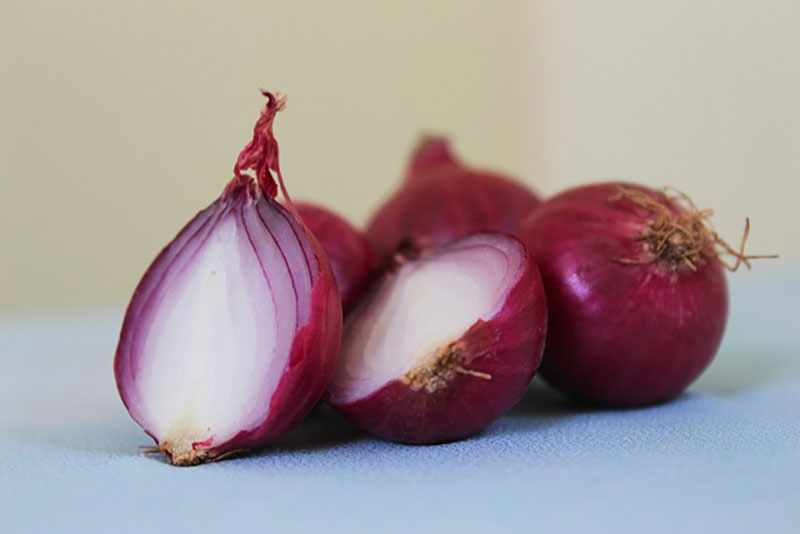
Onions are in the same genus as garlic and are equally as poisonous to rabbits. Fortunately, the odor often deters bunnies from eating this food. That’s a good thing, too, since they are more susceptible to onion’s toxic effects than many other animals.
Signs include loss of appetite, lethargy, and weakness. Immediate treatment is necessary in case of accidental ingestion.
7. Citrus
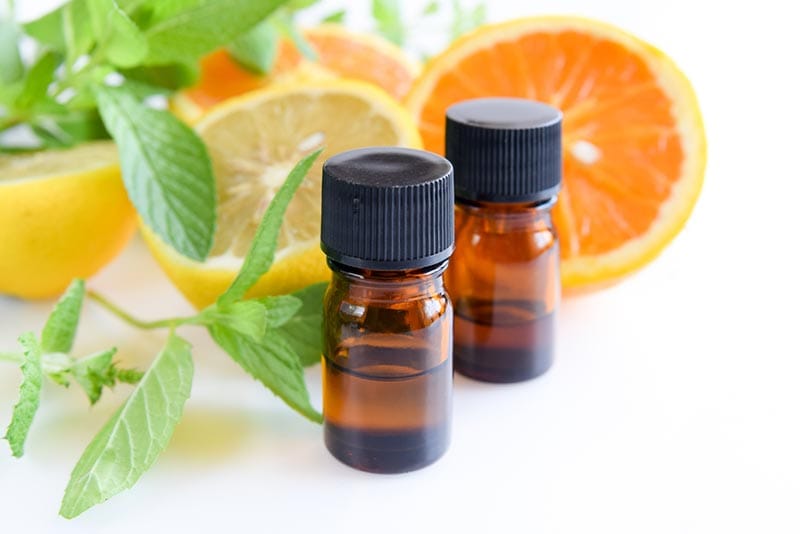
Citrus repels rabbits and other animals because of its strong scent. The concentrated essential oil can also irritate a bunny’s gums and skin. Unfamiliarity is probably another reason bunnies may avoid citrus. It’s not a scent they would normally encounter.
8. Cayenne
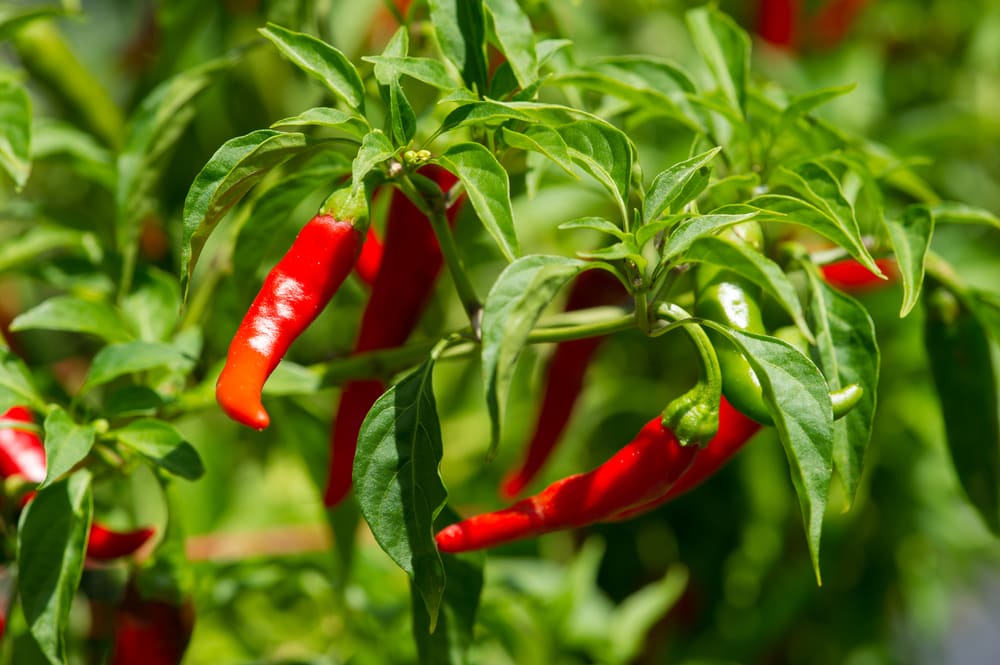
Capsaicin is the ingredient that gives spices like cayenne their heat. Humans are well-equipped to sense it with roughly 10,000 taste buds. Other mammals, like rabbits, have a similar number and, thus, a comparable reaction to cayenne.
9. Basil
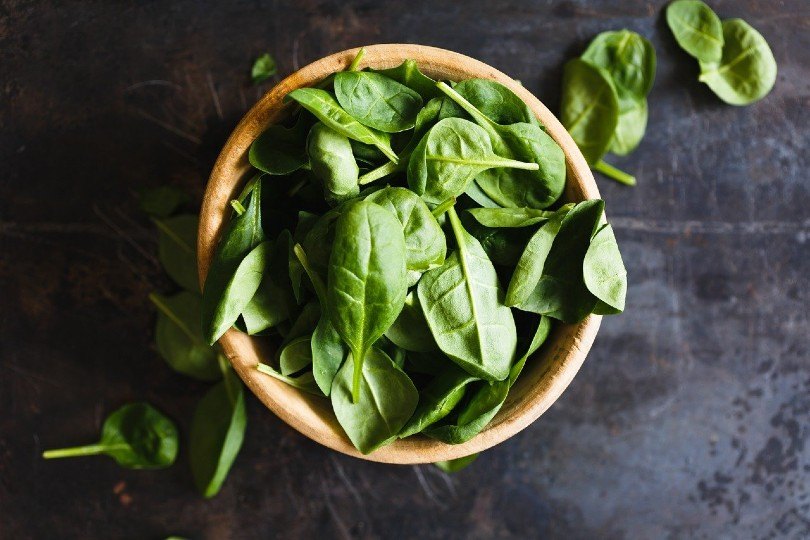
Fresh basil has an unmistakable scent. Yes, it’s pungent, but in a good way—at least to our tastes. It’s not the same with rabbits. Even though hays like timothy and alfalfa have strong smells, they are not on par with some herbs.
A wild lagomorph will look for less stinky foods to eat if it comes across basil in your garden.
10. Thyme
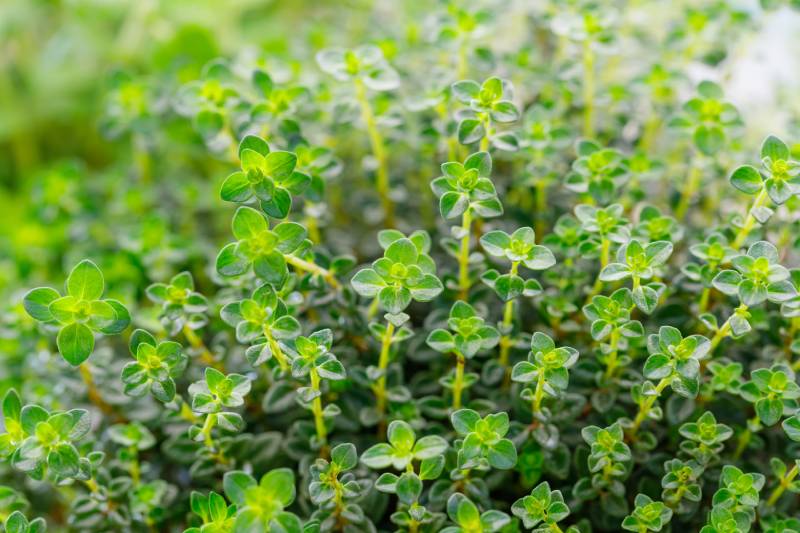
Thyme is another scent that isn’t necessarily a rabbit’s cup of tea. Again, it’s strong, which may seem more like a warning than an invitation to bunnies. Other cultivars, like lemon thyme, are even more aromatic and rabbit-resistant because of their scents.
They’re more likely to home in on your petunias and pansies than your fresh herbs.
11. Catnip
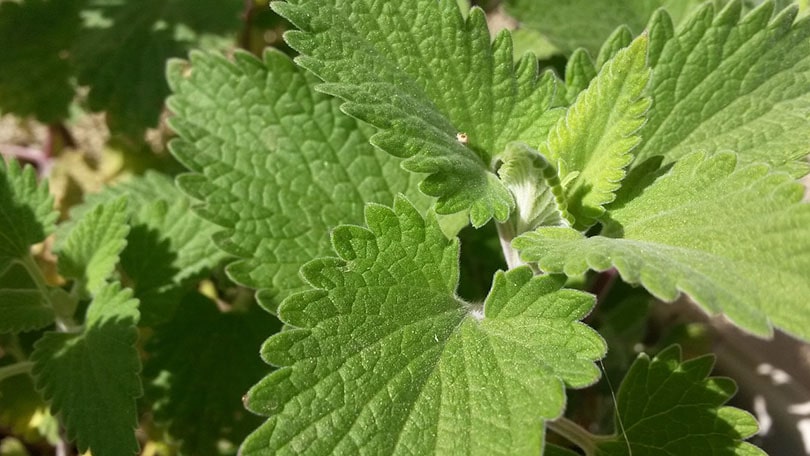
Catnip is an interesting plant. A chemical called nepetalactone is responsible for its pungency. Scientists theorize that cats developed a liking for the compound since it repels insects. Apparently, rabbits didn’t get the memo, as it has the opposite effect on them.
The leaves and flowers are particularly strongly scented, especially when crushed.
12. Mint

Mint species, like spearmint and peppermint, are in the same family as catnip. Like the latter, they are all aromatic. These strong scents will repel rabbits and deer for the same reason. We suspect they may also cause mouth irritation from the oils in their foliage that may also deter these animals. The taste is likely overpowering, too.
13. American Holly
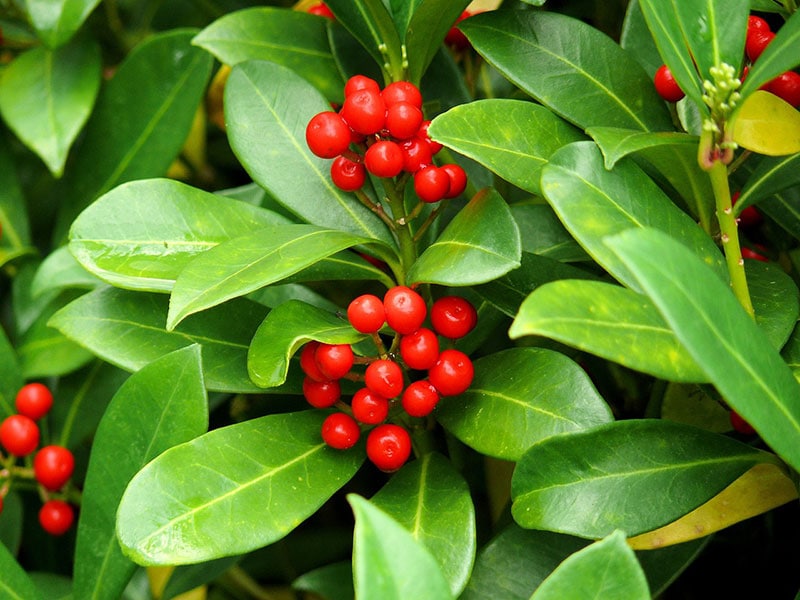
The scent may play a supporting role, but the sharp leaves are likely another convincing deterrent for rabbits and deer to steer clear of the American Holly. The red berries are the first clue about its toxicity. Many mammals and even humans can’t eat them without serious or sometimes fatal consequences.
14. Eucalyptus
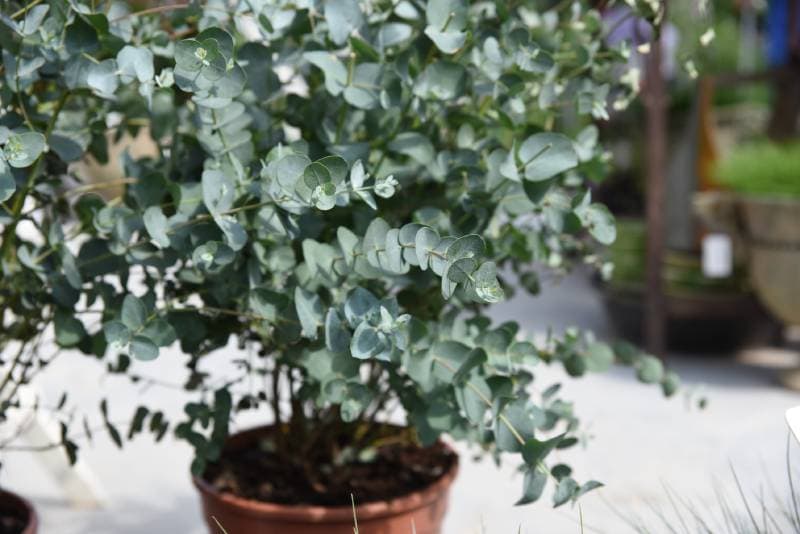
Eucalyptus will deter most animals because of its pungency. Like mint, we suspect it also doesn’t taste very good, either. The problem with plants like this one is the oil, which can coat other parts of it and nearby foliage if it becomes airborne.
Part of it may be unfamiliarity with the plant. After all, rabbits are only recent colonizers of Australia and New Zealand.
15. Marigolds
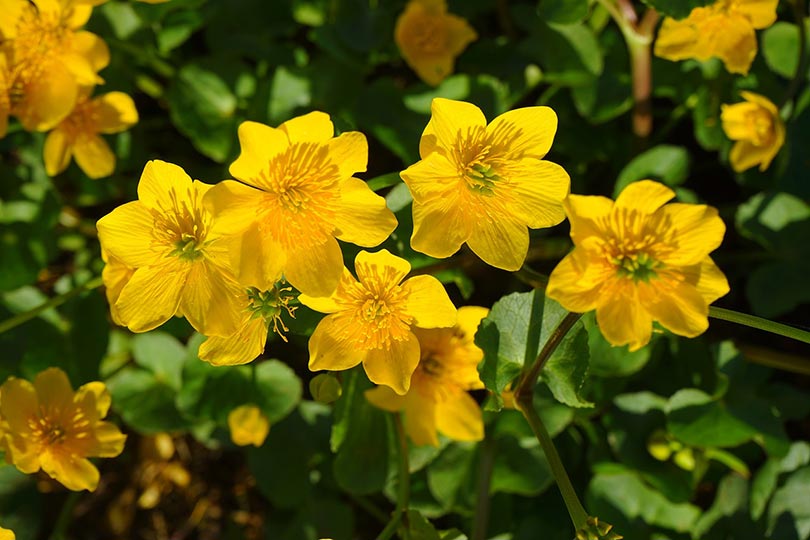
Marigolds are one of those catch-all plants that seem to turn off many species, including rabbits. Pungent only begins to describe their scent. It’s enough to keep the bunnies away from your garden. It’s a good thing for them that they’re pretty and hardy.

Conclusion
Like many animals, rabbits have aversions to smells of things that might be toxic to them. Instinct prevents them from eating things that are potentially poisonous to them. Interestingly, many similarities exist with other pets, like dogs and cats.
We attribute this to these animals’ keen sense of olfaction. These rabbit-hostile smells prove that an animal can learn a lot from a single sniff.
- See also: Do Rabbits Have a Good Sense of Smell?
Featured Image Credit: New Africa, Shutterstock
